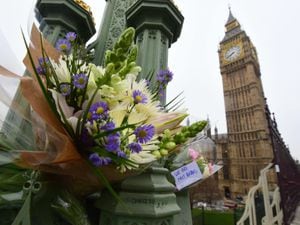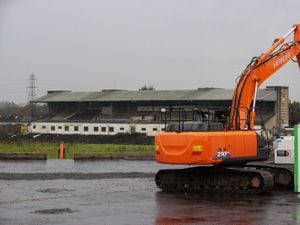Government renews calls for terror attack rehearsals
The advice on fast-moving “marauding” attacks follows last weekend’s fatal stabbings in Reading.

The Government has renewed calls for schools, offices, hospitals and other public places to be prepared for terrorist attacks following last weekend’s Reading stabbings.
Following the attack in which three people were killed and three more injured, the Home Office has republished advice urging various locations to rehearse their responses to what it calls marauding terror attacks.
Such attacks are categorised as “fast-moving and violent”, with assailants moving through a location aiming to kill or injure as many people as possible, and with most deaths occurring within minutes, before police can arrive.
The advice booklet, published by the national counter-terrorism security office on the Gov.uk website, says: “Defending your organisation against a marauding terrorist attack is undoubtedly a challenging task … However, with well developed procedures, security systems, training and rehearsal, lives can be saved.”

The advice is said to be most relevant to office buildings but can also apply to locations including schools, cinemas, hospitals, shopping centres, stadiums and transport hubs.
The booklet was first drafted after simulations carried out in 2017 and 2018.
But it has been republished after warnings from Home Secretary Priti Patel last week that the threat from so-called lone wolf terrorists was on the rise, and as many locations reopen again after the coronavirus lockdown.
It addresses how to respond to “low sophistication” attacks, such as those using bladed weapons or vehicles, through to more complex terrorist actions involving guns or explosives.
Incidents including the London Bridge and Westminster Bridge killings of 2017 are classed as marauding attacks.
“Rehearsing the response to a marauding terrorist attack is the only way to ensure that the procedures and technical systems function as expected and to highlight areas for improvement,” the advice says.
“Rehearsals are also key in preparing security and front-line personnel since the actions required of them during an attack do not form part of their usual duties.
“Testing components and later full integration of your procedures using practical rehearsals will highlight real-world issues and areas for further improvement.”
The booklet contains practical advice including that the method of alerting people to an attack is crucial in minimising the risks of death and injury – for example, avoiding using the word “firearm” in public address announcements as it could be misheard as “fire alarm”.
Pre-recorded warnings were also said to be not as effective as live announcements.
Warnings of a “security incident” were also described as ineffective in describing a terrorist attack according to the booklet, which publishes recommended announcements and recommends text messaging and smartphone apps among other ways to sound the alarm.
The advice also details how rehearsals can teach people how to act in the event of a dangerous intruder in a given location, and how to alert and help police under stress.
“You can go so far with briefing documents, videos and lectures but when you put these people into safe and managed stress test situations that’s where you start to see the real benefit of a full rehearsal,” the booklet says.





